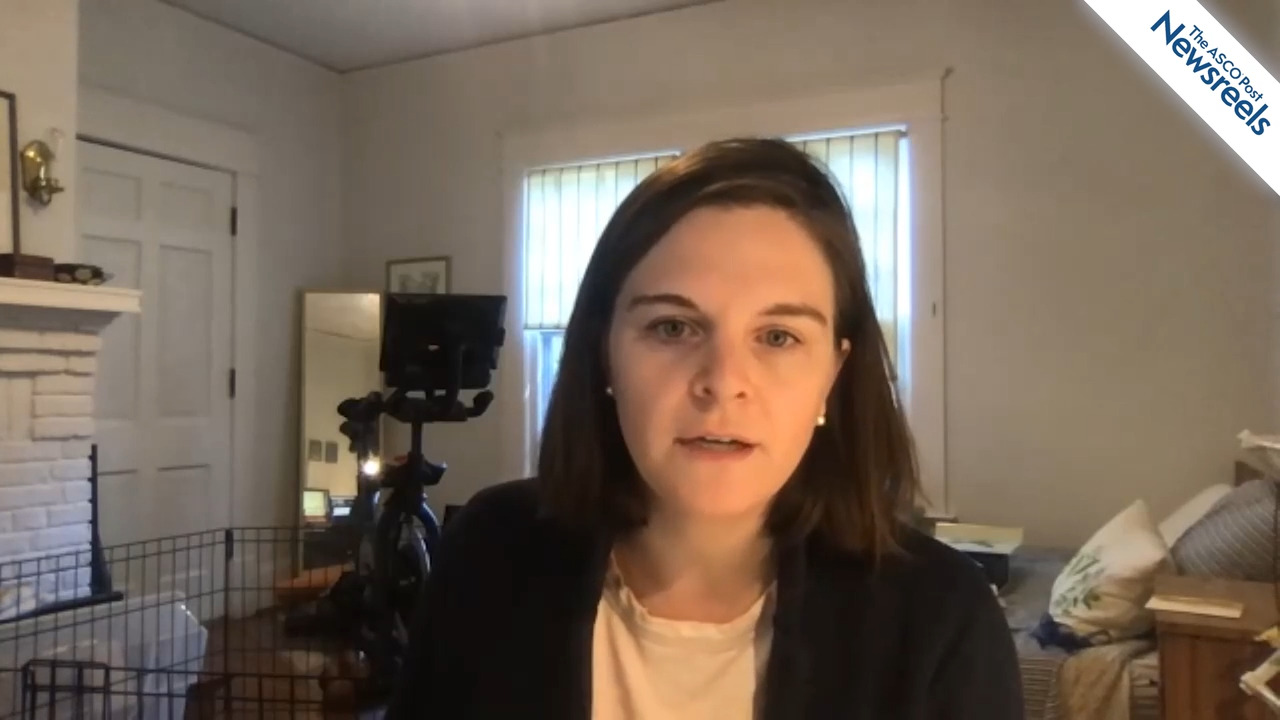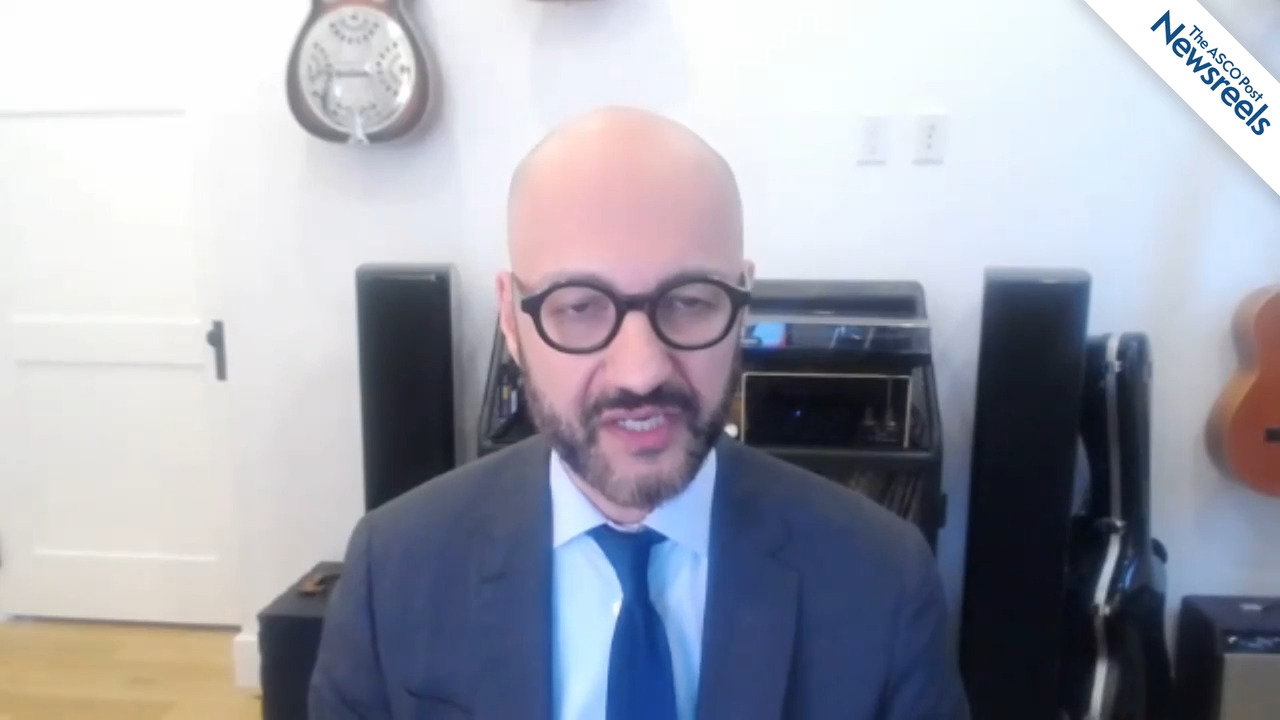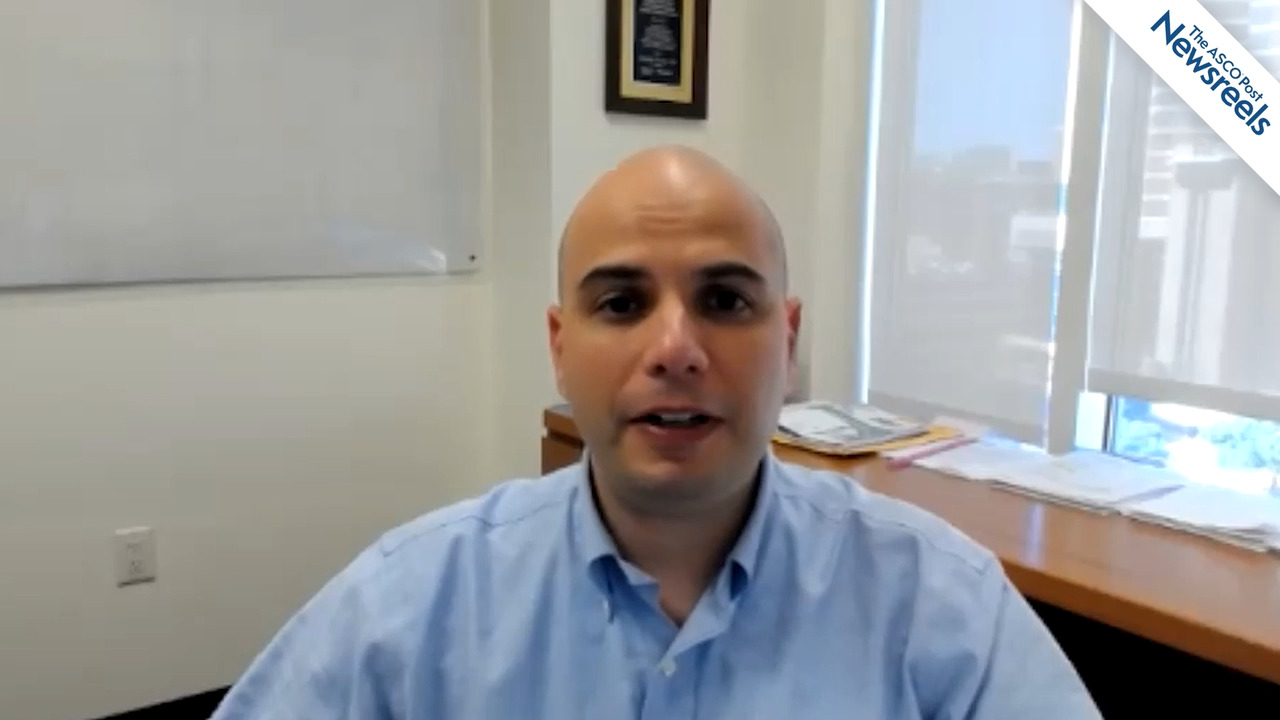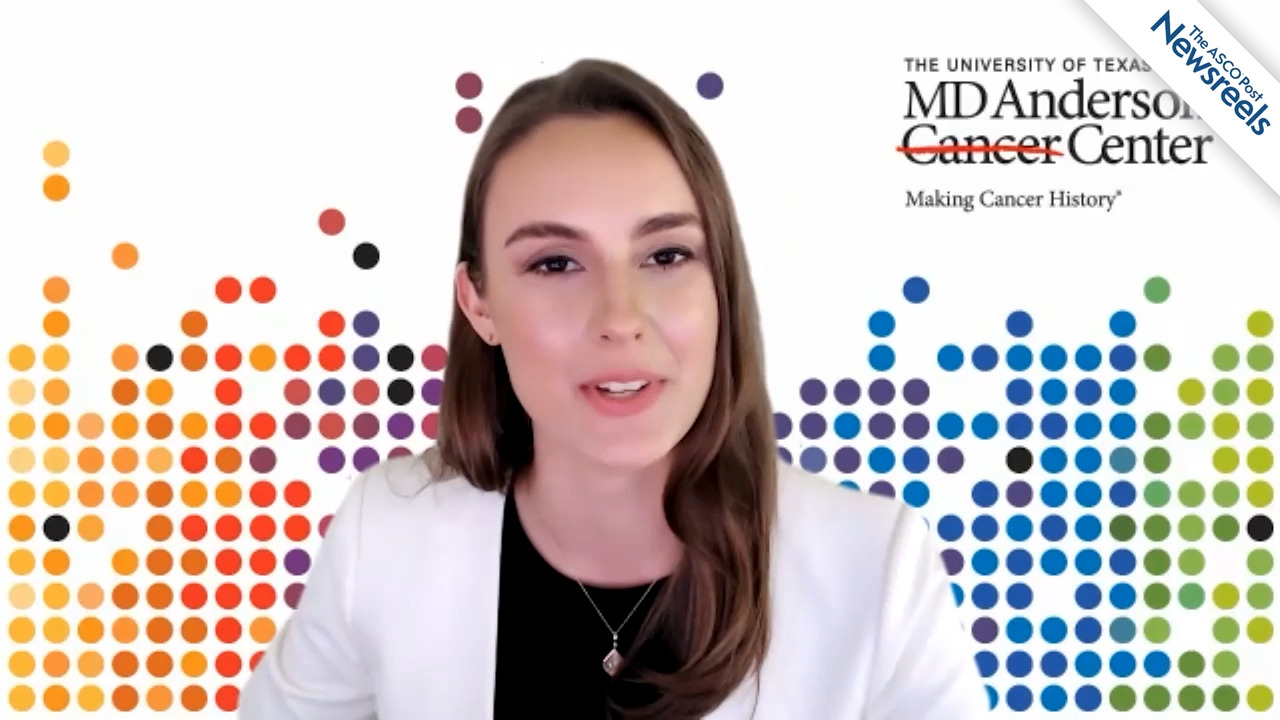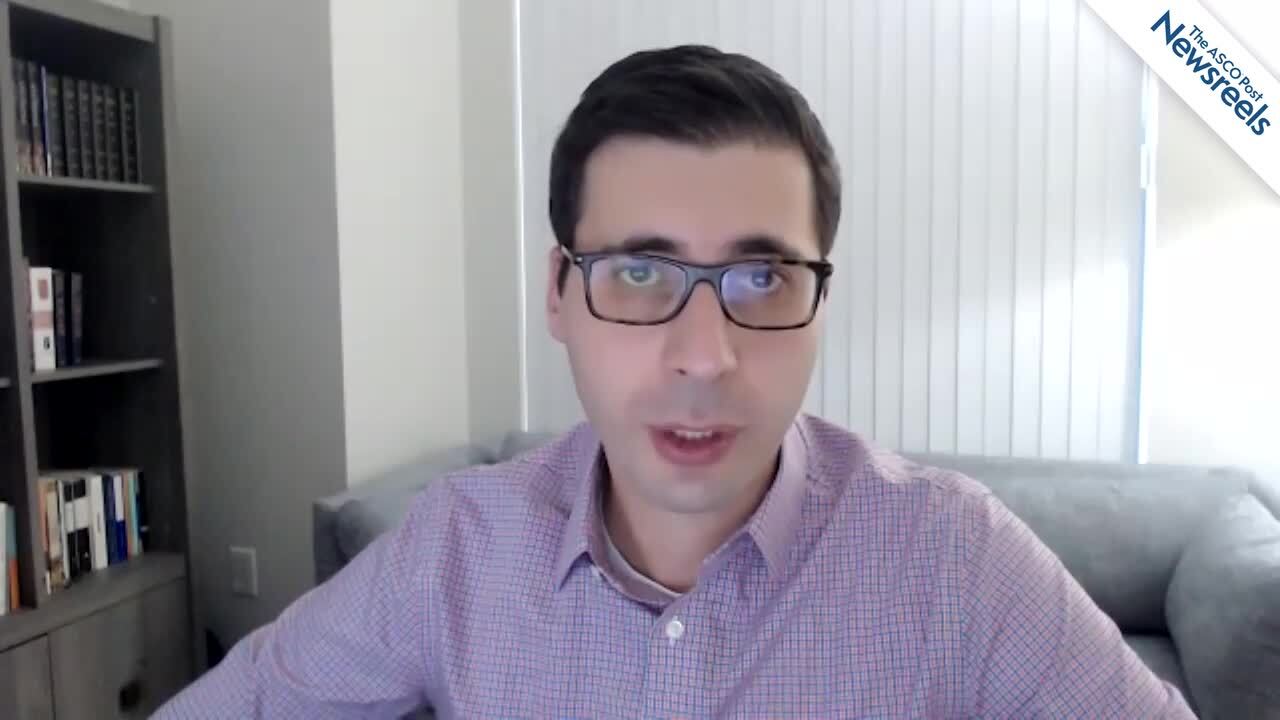Jeffrey Weber, MD, PhD, on Coronavirus, Cancer, and Immunotherapy: Navigating Clinical Trials and Treatment
SITC 2021
Jeffrey Weber, MD, PhD, of NYU Langone Medical Center, offers his perspective on the impact of the COVID-19 pandemic on oncology care and cancer clinical trials, as clinicians strive to provide optimal treatment to patients while reducing their risk of contracting the coronavirus. The steep decline in trial enrollment has recovered, with many of the changes in how research was conducted as a result of the pandemic still in place and improving the process going forward.
The ASCO Post Staff
Hannah E. Dzimitrowicz, MD, of Duke Cancer Center, discusses study results showing that in patients with melanoma and renal cell cancer receiving immune checkpoint inhibitor therapy, the COVID-19 vaccination appears to be well tolerated and safe. A higher rate of post-vaccination symptoms reported in these patients is likely related to more frequent visits compared with controls (Abstract 625).
The ASCO Post Staff
Sean Khozin, MD, MPH, of CancerLinQ, discusses the therapeutic advances that have made cancer care more targeted, even as real-world patient outcomes lag behind those reported in clinical trials. Dr. Khozin makes the case for the use of digital decision support tools to advance precision at the point of care.
The ASCO Post Staff
Mehmet Altan, MD, of The University of Texas MD Anderson Cancer Center, discusses findings from a phase Ib dose-escalation study, which showed early evidence of activity for NKTR-255, an investigational IL-15 receptor agonist, plus cetuximab in patients with solid tumors. Treatment appeared to lead to expansion and proliferation of NK and CD8+ cells (Abstract 957).
The ASCO Post Staff
Stephanie T. Schmidt, PhD, of The University of Texas MD Anderson Cancer Center, discusses the first integrated examination of the immunomodulatory effects of neoadjuvant chemotherapy, nivolumab, and nivolumab plus chemotherapy in resected non–small cell lung cancer (Abstract 962).
The ASCO Post Staff
Yevgeniy R. Semenov, MD, of Massachusetts General Hospital and Harvard Medical School, discusses new findings suggesting cutaneous adverse events such as vitiligo, lichenoid dermatitis, and psoriasis—which often occur in patients with cancer who receive immune checkpoint inhibitors—may be strongly associated with response to therapy and a 22% reduction in mortality (Abstract 814).
